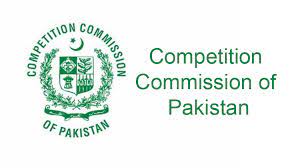COMPETITION CONSULTATIVE GROUP MEETING DISCUSSES CCP’S PERFORMANCE, REPORTS ON E-COMMERCE AND SME SECTOR
The Competition Commission imposition of the highest ever penalty of around PKR 40 billion in the sugar sector.
ISLAMABAD ( Web News )
The Competition Commission of Pakistan (CCP) held the 23rd meeting of Competition Consultative Group (CCG) in Karachi today in which the participants were briefed on the CCP’s advocacy and policy initiatives in e-commerce and SME sectors, the developments on legal fronts and the recent enforcement actions.
The CCP Chairperson, Ms. Rahat Kaunain Hassan, chaired the meeting, which was attended by the CCP Members Ms. Shaista Bano, Ms. Bushra Naz Malik, Mr. Mujtaba Ahmad Lodhi, senior officials, and senior level representation from the regulatory bodies, corporate sector, SMEs, online trading platforms, Pakistan Stock Exchange (PSX), chambers of commerce, and consumer associations. Established in 2008 and recently revived, the CCG is an informal think-tank, which provides a platform to consult with stakeholders on competition-related matters.

Briefing the participants about the CCP’s performance, the Chairperson stated that the pace of enforcement has increased with the imposition of the highest ever penalty of around PKR 40 billion in the sugar sector. Moreover, several key enquiries in important sectors are ongoing. During the last one year, the CCP has completed 28 enquiries, conducted 17 search inspections, and passed 12 orders. Discussing the challenges overcome by CCP recently, she informed that the Commission has started receiving the 3% of the fee and charges collected by specific regulators (PTA, SECP, NEPRA, OGRA and PEMRA). Moreover, the Competition Appellate Tribunal is now functional, which shall aid in clearing the backlog of cases.
The Chairperson also mentioned the general difficulty in concluding proceedings due to the parties continuously seeking injunctive relief from Courts even at nascent stages of an enquiry, such as call for information and search and inspections.
Presentations were given on studies initiated by CCP i.e. “Competition and Trade Practices Regulation in the Era of E-Commerce, Big Tech and Data Sciences” and “Improving Economic Efficiency in Small-and-Medium Enterprises in Pakistan” (which represent 2 key targets in the CCP’s Strategic Vision 2021).
The study on e-commerce highlights possible competition concerns in the e-commerce/online platforms market, which may fall under Section 3 (abusive conduct by dominant platforms) and Section 10 (deceptive marketing practices) of the Competition Act, 2010, and analyzes regulation strategies in more developed countries across the globe as well as other countries in the Region. The Chairperson clarified that the CCP does not aim to become a data protection agency or over-regulate, a view which PSX and SECP senior officials endorsed along with applauding the said initiative. Instead, the study aims to provide guidelines serving as a minimum benchmark of basic disclosures companies should adhere to, to avoid deceptive marketing practices. The ultimate aim is to facilitate businesses and create a competitive, innovative, and fair marketplace for online businesses in Pakistan in order to promote growth and allow them to compete with other businesses/platforms globally. In this connection, the Chairperson also stressed that stakeholders need to come forward to assist the CCP. She cited the initiative of e-commerce where the CCP had sought comments from 35 e-commerce businesses, out of which, only eight responded.
Other industry participants stressed the need to maintain a balance where the onus/burden of compliance should remain on the seller. It was also highlighted that start-up businesses should generally be granted a grace period from compliance with the said proposed guidelines in order to enable them to effectively enter the market.
The second study reviews the SME Policy Framework in Pakistan and based on two surveys concerning demand side constraints and supply side issues in SMEs’ growth and challenges in SME financing, offers recommendations to the Government of Pakistan and other concerned entities focusing on competition aspects, i.e., to ensure a level-playing field for SMEs to compete, which shall lead to the growth of the SME sector. In this regard, the representative from the Banks Association highlighted that banking companies and SBP have collaborated to create an SME Asaan Finance Scheme (SAAF) to help provide financing to SMEs and PSX has also initiated the GEM Board, which has more lenient listing requirements and a lower listing fee for SMEs.
During the CCG meeting, certain other competition concerns were also highlighted relating to the polyester yarn industry, the membership mechanism of PASHA, milk prices (which the Commission clarified was already an ongoing issue) and the steel industry in relation to the cost of raw materials for the construction sector.
The Chairperson concluded the session thanking all the participants and emphasising that the role of the competition regulator is that of an umpire, and whenever it will call for policy intervention, the Commission will voice concerns as per its mandate. While with regard to anti-competitive practices/market distortion, it will act without fear and favour. She said that the Commission strongly believes in effective enforcement which is globally viewed as best advocacy.

